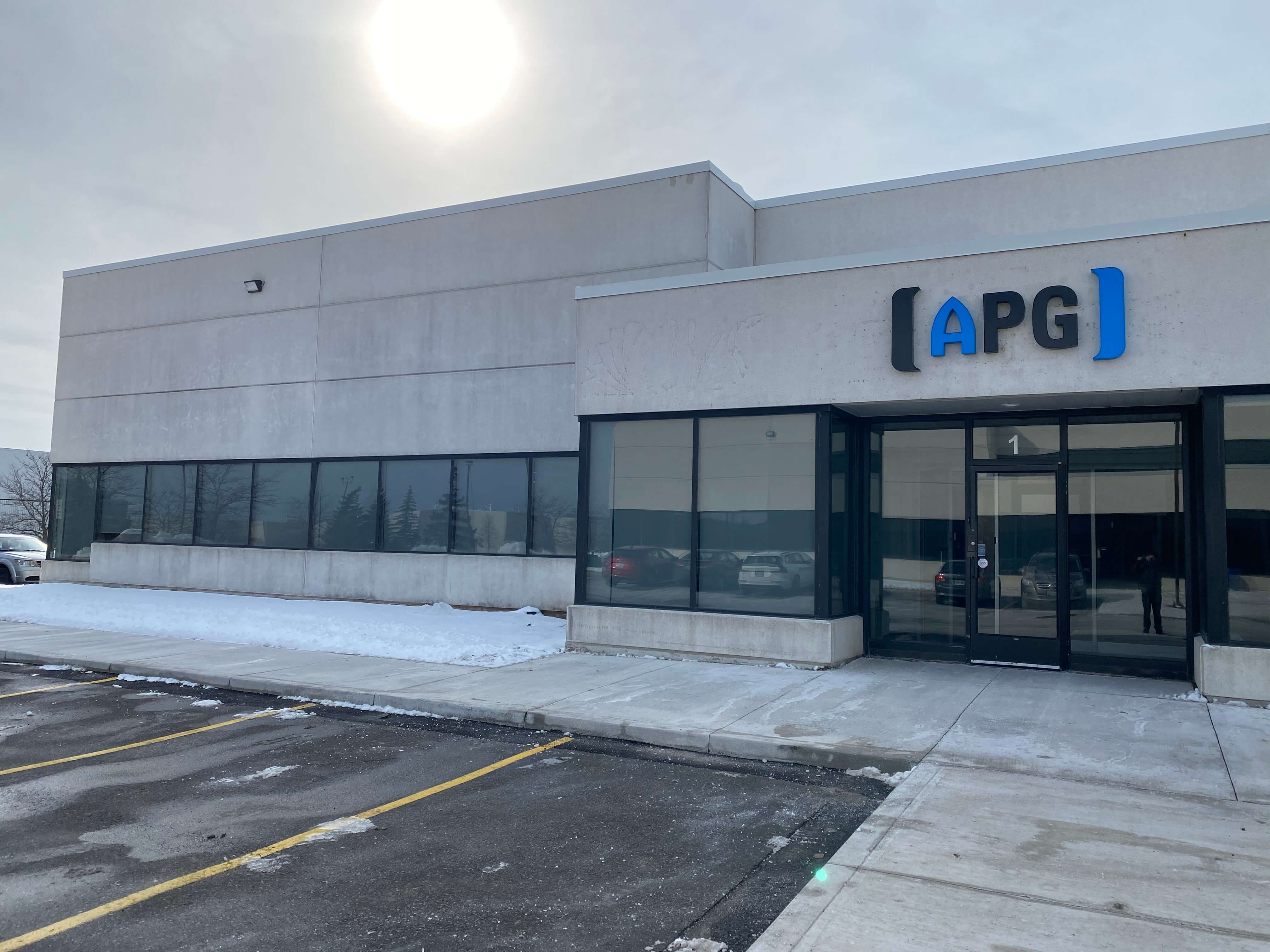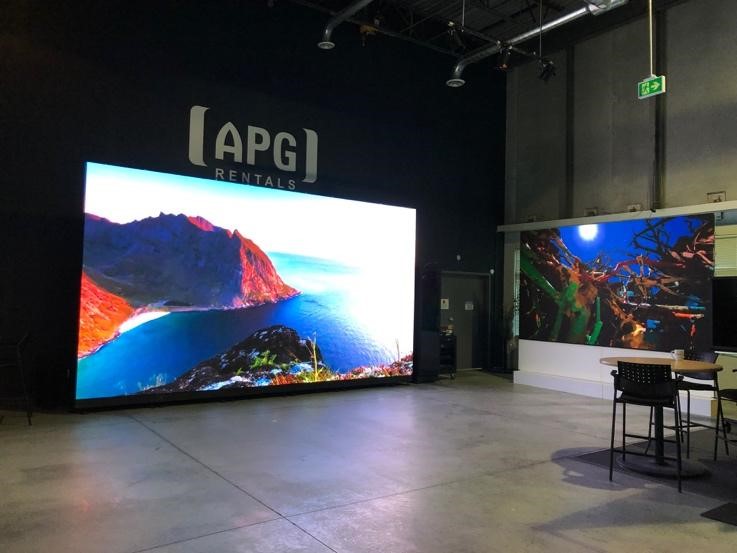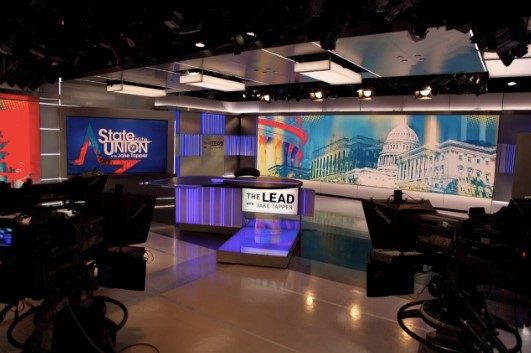Post on
CNN’s Washington D.C. studio called upon APG Displays to optimize its United States presidential election reporting with two high resolution Leyard 1.2mm LED pixel pitch displays and one 30’ wide 1.6mm pixel pitch LED display.
Hundreds of thousands of people tune into CNN every day for coverage on the 2016 United States presidential election. That’s why, leading up to this year, CNN decided to redesign their studio in Washington D.C. to include the highest-resolution, lowest pixel pitch LED displays in the world for “The Situation Room” with Wolf Blitzer and “The Lead” with Jake Tapper. To do so, they called upon videowall experts APG Displays to renovate the studio. They entirely revolutionized the set, completed after a year of LED testing and designing, with one 25’ wide 1.2mm pixel pitch Leyard LED display, one 108” diagonal 1.2mm pixel pitch Leyard LED display, and one 30’ wide 1.6mm pixel pitch Leyard LED display — solidifying CNN as the only televised broadcast network to utilize the latest 1.2mm videowall technologies on air.
“CNN is a pioneer in the televised broadcasting space, especially during the 2016 presidential election. This installation set the bar for quality in visual reporting,” APG Displays President David Weatherhead said today. “CNN’s former LCD modular displays were difficult to shoot. They called on us to rectify the issue with high-resolution LED displays that would allow them to film creative, tight shots of the videowall itself. No other network in the world has a studio with 1.2 mm pixel pitch LED videowalls. CNN has truly set the standard for modern television.”
CNN’s need for high-resolution videowalls is grounded in their distinct filming technique. In traditional television network broadcasting, news anchors report in front of a videowall, but the camera focuses primarily on them. CNN, on the other hand, uses unique camera shifts and tight zoom-shots that require a display with stunning resolution up-close and from a distance. With out-of-date LCD displays, CNN’s zoom-in shots created blurry moiré and colour-shift effects that lessened the quality of their program. To resolve the issue, APG Displays suggested that CNN use LED videowalls that go above and beyond the norm with incredible, next-generation capabilities that will remain cutting-edge for years to come.
“We presented CNN with the most innovative displays on the market, and Leyard instantly captured their attention,” Weatherhead continued. “Together, we proceeded to conduct a wide array of camera tests to ensure that Leyard’s display technology looked nothing short of stunning on the screen.”
Proving just how vivid Leyard’s resolution is, APG Displays positioned two camera feeds next to each other with one direct graphic feed and the other with the Leyard display’s image of the graphic feed. “No one could tell the difference between the source and the display of the source,” Weatherhead said. “This certainly demonstrated that these displays offer unprecedented imagery never before used on live television.”
After CNN selected Leyard, APG Displays Vice President of Engineering Kevin Linton conducted extensive testing at the factory in Beijing as APG Displays does with all large LED projects. “The pre-installation testing is crucial to make sure that the videowalls deliver the quality required by the client,” Linton emphasized. “We had a very small window of time for the actual installation, so every element had to be perfect before it began.”
The deconstruction of CNN’s old system and the installation of the new system took two weeks total. Since the newsroom never sleeps, the installation was well underway at CNN’s studio while shows were still broadcasted live- meaning that the APG Displays team had to be efficient and extremely quiet. “It was an interesting experience for our crew,” Linton said. “But our team is equipped with experts that work quickly and carefully, so we were able to do it.”
With Leyard’s LED 1.2mm and 1.6mm pixel pitch displays, CNN is now able to achieve excellent image uniformity and no challenges with moiré on television. Also since the new LED technology has no bezels, there are no distracting black-lines on the videowalls. Unlike modular LCD displays, Leyard’s videowalls allow the production team to easily manipulate color balancing, calibrating, and brightness levels. APG Displays helped to train the team so that they could easily control the videowall after the project’s completion. “Leyard’s 1.2mm and 1.6mm pixel pitch displays allow CNN’s production team to control the displays in a way that LCD products cannot,” Weatherhead explained. “Beyond the visually stunning element, Leyard’s displays also offer the team an easy-to-use software so they can effortlessly control what appears on screen.”
To maximize on-site use, APG Displays designed the large 1.6mm videowall with the capability to split it into two and flip over to be used in either Studio A or Studio B, both of which are set back-to-back. To do so, they used a Christie Spyder X20 video processer that evenly divides the screen into two separate content streams. Now, CNN can visually divide the video wall in half, and use it in either Studio A and Studio B. To physically divide the studio, a retractable and movable wall was installed into the ceiling.
APG Displays also went through great lengths to ensure that the video walls were extensively protected in case of a malfunction or power outage. “The last thing that CNN wants is for their graphic display to black out on air,” Weatherhead explained. “To prevent this from happening, we designed a backup system for every single component for each videowall. If one power supply dies, another power supply kicks in automatically with no delay. This is the most resilient piece of equipment you can have, and it’s necessary in this particular application.”
At the project’s conclusion, CNN was extremely satisfied with the final result. “We’re so proud to be apart of this televised broadcasting revolution that CNN has started,” Weatherhead said. “These innovative displays will assist them in delivering the most comprehensive and compelling imagery, now and in the future.”


